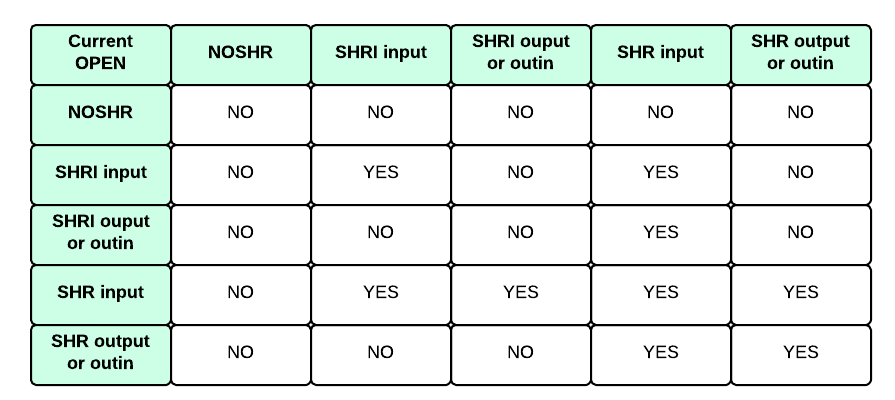SHRI
SHRI allows others to use the file for input only. Others may read but not change a file opened SHRI. This parameter is useful when a program is doing batch updates or multi-record updates.
Due to potential hazards that could be caused by changes to an internal file between sorting and printing a report, ShrI is the system default for both the SORT control file and the SORT input file. As an example of such a situation, consider a report that prints a customer master file in name order. The report would either appear to be out of order or it would produce an error if another user were to change or delete a record after it was sorted and before that particular record was printed.
The SORT and INDEX utilities depend on stable input data during the sorting or indexing process. Therefore, the default for the input file is ShrI. It is possible to override the default file-sharing attribute for SORT input files. The NoShr and Shr parameters may also be specified in the FILE specification of a SORT control file. Before specifying the Shr parameter, however, you should be sure to consider the possible effects to a report program if the file is changed before or while the report is being printed.
When ShrI is specified with a file opened for INPUT, OUTPUT, or OUTIN, all subsequent OPENs must be for input only (except when using multiple index files at the same workstation). If the file was previously opened for OUTPUT or OUTIN, a file-sharing error would occur on an attempt to open with ShrI. The table below summarizes the rules and errors that can occur with various combinations of file-sharing parameters and pairs of first and second OPENs, either both from the same workstation or from two different workstations.
See Record Locking for more information.
